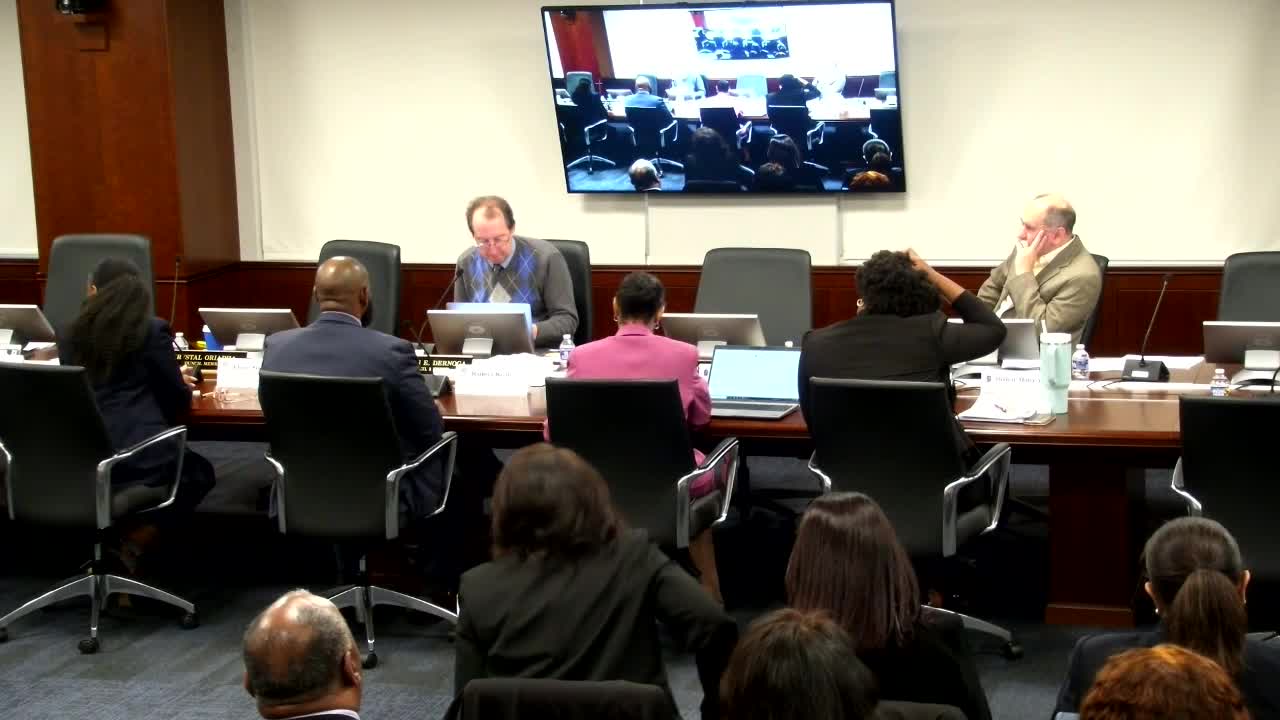Economic Development Corporation outlines priorities, warns marketing cuts will limit outreach
Get AI-powered insights, summaries, and transcripts
Subscribe
Summary
The Prince George’s County Economic Development Corporation (EDC) briefed the PHED committee on budget cuts that will reduce marketing and event spending, provided details on the EDI fund pipeline and international business outreach, and said state-level changes (the DECADE Act) could affect incentives the county uses to attract and retain firms.
The Prince George’s County Economic Development Corporation (EDC) told a county committee on April 7 that planned budget reductions will curtail the agency’s ability to market the county and participate in trade shows and conferences that the EDC says bring economic-development leads.
EDC leadership also described ongoing work on business attraction and retention, technical assistance for small and minority-owned firms, and the continued use of the county Economic Development Incentive (EDI) fund to support projects that may not otherwise occur without local incentives.
Key points - Marketing and events. Lori Valentine, EDC vice president for policy and public relations, said the EDC’s marketing budget is set to shrink and that the agency previously operated with roughly $350,000 for marketing. Valentine told the committee the proposed reduction would leave roughly $180,000 available and would limit the EDC’s ability to sponsor or attend major conferences used to attract investment and to promote county businesses. - EDI fund and project pipeline. EDC presented a summary of EDI fund activity, reporting 52 committed applications in FY25 and noting that the EDI fund has leveraged substantial private investment to date. The EDC said it serves as the “front door” for EDI fund applications, coordinates with the Office of Law, Office of Procurement and county partners, and negotiates project-specific workforce and procurement commitments as part of loan or incentive agreements. - State and federal threats. EDC officials warned county incentives face headwinds from the state-level DECADE Act proposal, which would restructure several incentive programs including the VLT fund and enterprise‑zone credits. EDC staff noted the potential for job-creation tax credits and other tools to be affected and said they were monitoring legislative activity for impacts on county competitiveness. - Small-business technical assistance. The EDC described Grow Prince George’s and other technical-assistance programming developed with ARPA and other funds, including accelerator programs and procurement events designed to increase local contracting and procurement readiness. Much of that work was supported by one-time ARPA funding that the EDC said has now ended and needs replacement to continue at scale.
Committee questions and follow-up Committee members asked how the EDC assesses job-creation and county-resident hiring commitments in EDI deals and who signs off on negotiations. EDC said each project is negotiated case‑by‑case, with EDC as the lead intake and negotiator and with input from the Office of Law, Procurement and the county’s financial advisory committee; final deals also seek council review. Council members requested additional impact reporting on county‑resident hires and more detail about how EDI commitments are enforced and monitored.
Why it matters: the EDC’s marketing and incentive activities are central to the county’s approach to attracting investment and to supporting small businesses. Reduced marketing and fewer sponsored trade missions could limit visibility to potential investors and make it harder to promote county businesses abroad.
